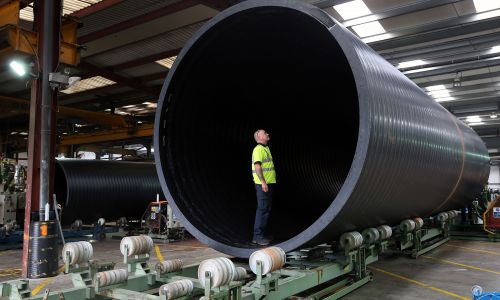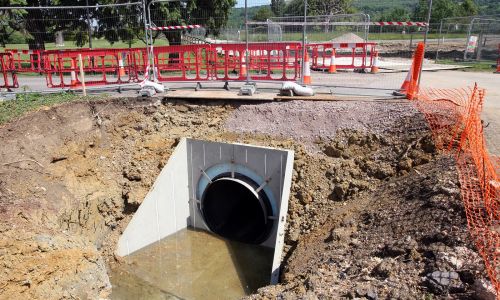30th March 2017
The UK housing sector doesn't care about Brexit
It may go against popular opinion, but as a manufacturer supplying the UK house building sector, it’s my view that the UK housing industry is booming. And even Brexit has failed to make a dent in the confidence of a newly buoyant sector.
That’s right the UK housing industry doesn’t care about Brexit. In fact, it’s laughing in its face. And despite all the harbingers of doom, our order book has been defiantly filling up.
But why? Well if you look at the headlines, and in many cases the facts, the UK housing sector is in crisis. In November the Redfern review detailed the massive slump in home ownership demonstrating how real house prices have jumped 151% since 1996. In the same month a report by the ResPublica thinktank told us how 1.2 million people are languishing on housing waiting lists in England, while more than 6 million deal with insecure tenure agreements and have no prospect of ever buying their own home. In December 87% of local authorities said it would not be possible to meet their targets of building one million new homes in England by 2020, largely due to under-resourced planning departments. And the negativity keeps on coming.
And yet if you speak to the people actually working in the sector you’ll hear a very different story. Business is, by and large, booming. The trouble is the UK is so far behind its house building targets it’s just not happening fast enough to keep everyone happy. But credit where credit is due, progress is being made and it’s being made fast. In fact according to the Home Builders Federation housing supply is up 52% in the past three years and despite European and global political and economic uncertainty it shows no signs of slowing down.
Ultimately, plans to speed up the planning process, bring forward more developable land and make Local Authorities abide by their responsibilities, are key. If we are to build more homes, we need more land coming through the system more quickly. Measures that will allow SME builders to build more homes will increase the capacity of an industry largely dominated by the big developers and result in increases in overall supply.
So how can we explain this defiant headway at a time when many other sectors are struggling with a lack of will and investment from nervous financiers who are pressing pause on progress as they wait to see how the European and international situations unfurl?
Of course there are numerous reasons, but the two principal reasons are this. Firstly, the UK housing industry has been around the block a bit, weathering endless political and economic storms, from the labour and material shortages of post-war Britain, to the shame of the Victorian tenement slums, to the controversy of Margaret Thatcher’s right to buy policy in the eighties. So for many house builders Brexit is considered to be merely another bump in a decidedly uneven road.
And secondly, the fact of the matter is that, Brexit aside, people need somewhere to live. After all, in a developed, modern society such as ours, shelter is a human right. As one of the wealthiest economies on earth we have a moral obligation to provide homes for our citizens. It’s not a choice, so therefore we must build.



